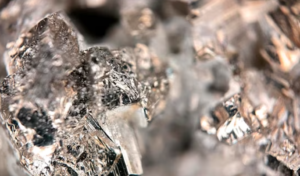#VulcanEnergy #LithiumProduction #GeothermalEnergy #ElectricVehicles #BatteryMaterials #RenewableEnergy #SustainableMining #GreenTransition
In a recent breakthrough for the renewable energy sector, Vulcan Energy has commenced the production of lithium chloride in Germany, utilizing geothermal energy. This initiative marks a significant step towards the creation of battery-grade lithium hydroxide, crucial for powering electric vehicles (EVs). Vulcan Energy’s CEO, Cris Moreno, highlighted the importance of this achievement by stating that this is the first instance of locally sourced lithium in Germany, emphasizing the utilization of domestic resources for sustainable development.
Operating within the Upper Rhine Valley region, Vulcan Energy has secured licenses to explore over 1,000 kilometers of land. The company’s innovative approach involves extracting super-heated, lithium-rich brine from underground reservoirs. This process not only facilitates lithium extraction but also generates electricity, showcasing a dual benefit of harnessing renewable energy while producing essential battery materials.
This initiative aligns with the European Union’s ambitious goals for the green transition, advocating for the local production, recycling, and refinement of critical metals like lithium and cobalt. Despite challenges such as financial constraints, soaring energy costs, and local resistance, the German government has pledged significant support through a 1.1 billion-euro investment fund aimed at securing critical raw materials for high-tech and green projects.
Vulcan Energy’s progress is notable, with established offtake agreements with leading automakers such as Volkswagen, Stellantis, and Renault. The company’s Landau-based optimization plant has demonstrated impressive lithium extraction efficiency rates above 90%, affirming the project’s viability and alignment with commercial expectations.
Looking ahead, Vulcan Energy plans to convert its lithium chloride output into battery-grade lithium hydroxide at a new conversion plant in Frankfurt, expecting to commence operations in the second half of the year. Furthermore, the company is advancing its efforts to establish its first large-scale industrial plant, projected to produce 24,000 tonnes of lithium hydroxide annually by the end of 2026—enough to supply 500,000 EVs.
With Vulcan Energy nearing the completion of its financing efforts, supported by positive evaluations from the European Investment Bank for potential debt financing of up to 500 million euros, the future looks promising for sustainable lithium production in Germany. This venture not only exemplifies the potential for innovative energy solutions but also reinforces the commitment towards achieving a green and sustainable future in the automotive and energy sectors.







Comments are closed.